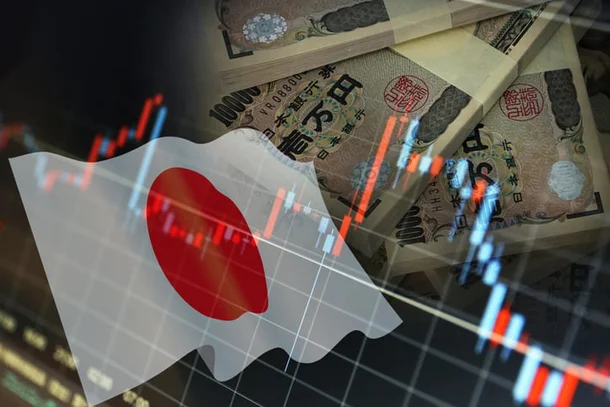The recent Japan stock market crash has been driven by several complex factors, most notably the Bank of Japan’s (BOJ) interest rate hikes and the ongoing unwinding of the yen carry trade. Over the past few months, Japan stock market, particularly the Nikkei 225 index, has experienced sharp declines, wiping out much of its gains for the year. In early August 2024, the Nikkei fell over 12% in just one trading session, marking one of its worst performances in recent history.
Key Drivers of the Japan Stock Market Crash

- Bank of Japan’s Interest Rate Hike
- For the first time in 17 years, the BOJ raised interest rates from near-zero to 0.25%.
- While this move was seen as necessary to counter inflation and stabilize the yen, it sent shockwaves through global markets.
- Japan had long been a source of ultra-cheap capital for investors due to its low interest rates, allowing for profitable borrowing through the yen carry trade. (Market Index)(Observer)
- This trade involves borrowing yen at low rates and investing in higher-yielding foreign assets, but the sudden increase in interest rates and the resulting appreciation of the yen has made this trade significantly less profitable.
- Unwinding of the Yen Carry Trade
- The yen carry trade had been a popular strategy for institutional investors, but as the yen appreciated by nearly 12% in a matter of weeks, these investors were forced to sell off their foreign assets to cover their loans.
- This sell-off triggered a broader market decline, not only in Japan but also in other global stock markets.
- The U.S. market, for example, saw significant declines as well, with the Nasdaq and S&P 500 suffering losses. (markets.businessinsider.com)(Kiplinger.com)
- Global Economic Pressures
- Japan’s stock market downturn is not happening in isolation.
- It coincides with a period of global economic uncertainty, including concerns over the U.S. economy, rising global interest rates, and the potential for a global recession.
- Investors are increasingly risk-averse, moving away from equities and high-risk investments toward safer assets like government bonds.
- The strengthening yen has also negatively impacted Japan’s export-driven economy, as a stronger currency makes Japanese goods more expensive on the global market. (Observer)(Kiplinger.com)
Implications for Investors
The volatility in Japan’s stock market is a reflection of deeper economic concerns, both domestically and globally. For Japanese investors, the sharp increase in the yen’s value has created a challenging environment, particularly for export-driven industries like automotive and technology. Major companies, including Toyota and SoftBank, have seen substantial declines in their stock prices as a result of this downturn. (markets.businessinsider.com)
Internationally, the situation is also having ripple effects. As investors unwind their positions in Japanese markets, this has contributed to broader market sell-offs across Asia and the U.S.. For example, the Australian stock market (ASX 200) and other major indices have also been affected by the contagion from Japan. (ET NOW)(Market Index).
What’s Next for Japan Stock Market?

Looking forward, Japan’s stock market may continue to experience turbulence as the BOJ navigates its monetary policy. On one hand, the rate hikes were intended to combat deflation and stabilize the yen. On the other hand, these hikes have led to severe market volatility and an increasingly fragile economic outlook. (Observer)
Analysts are divided on whether the market will stabilize in the near term. Some believe that further unwinding of the carry trade could lead to additional stock market losses, particularly if the yen continues to strengthen. Others suggest that the worst of the sell-off may be over, especially if global economic conditions improve and inflationary pressures subside. (Kiplinger.com)
Conclusion : Why Japan Stock Market Is Crashing?
The Japan stock market crash in 2024 is the result of multiple interconnected factors, including interest rate hikes, the unwinding of the yen carry trade, and broader global economic challenges. While the market is currently volatile, investors are watching closely to see how the BOJ and the global economy evolve. For now, the future of Japan’s stock market remains uncertain, with risks of further declines but also opportunities for recovery depending on how global markets and interest rates develop.
Also Read:



